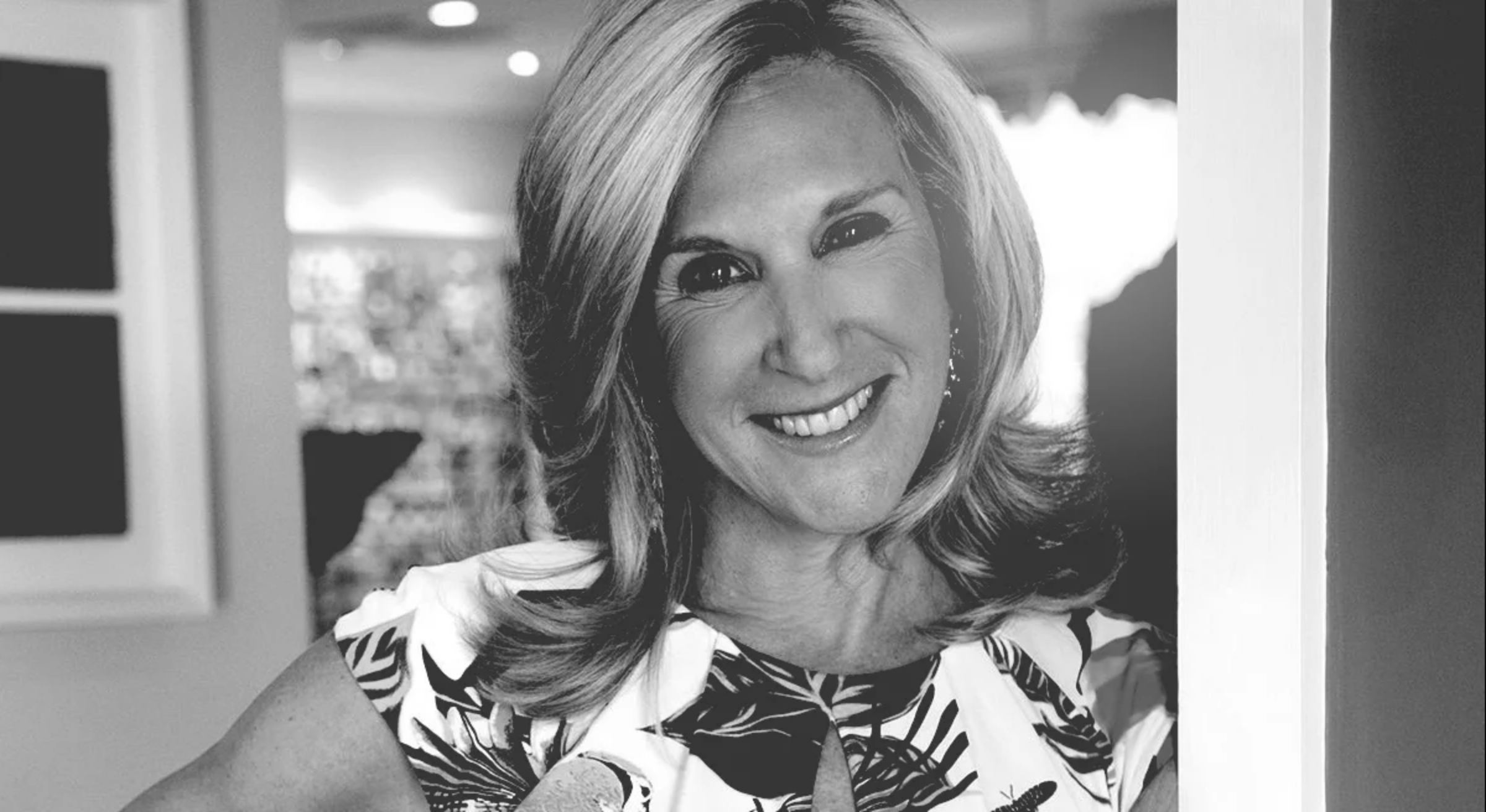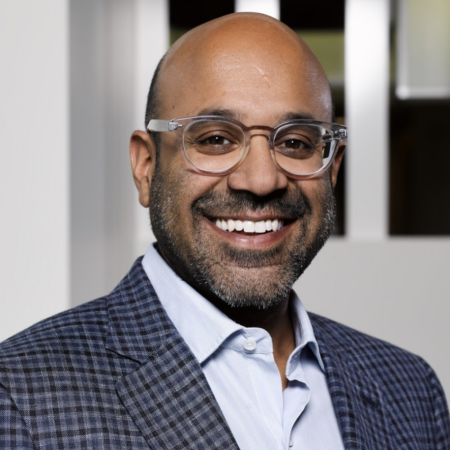First-of-its-Kind Study Shows Increased Exposure to Touchscreens and TV Results in a Significant Impact on Infants’ Sleep
Categories
Categories
The Digital Life Initiative is thrilled to announce a $2 million dollar gift from Peggy Koenig. This incredible gift will allow DLI to advance two core goals. A new Fellowship in Technology Law & Policy has been launched to bridge our exceptional research on societal impacts of digital technologies with law and policy-making at city, state, and national levels. As with everything we do, our work in law, policy, and public interest advocacy will be steered by a steadfast commitment to ethics, social justice, and quality of life in digital societies.
“We’ve created technologies that are more powerful than any of us could have anticipated, surfacing entirely new questions that we must address in order to build a functional society and tech ecosystem for the future”, says Greg Morrisett, Jack and Rilla Neafsey Dean at Cornell Tech. “Peggy not only shares this vision but with this significant investment, she is providing crucial seed funds to help further DLI’s capacity to shape policy decisions in these crucial areas.”
Ms. Koenig’s gift will also advance our ambitious educational aims – ensuring that no student at Cornell Tech will graduate without formal training in ethical thinking. We’re excited to expand regular course offerings that grapple with digital technologies seen through the lens of ethics, social good, and public engagement. The gift will also support innovation in nontraditional opportunities, such as summer clinics, internships, and ethics-based projects. We are deeply grateful!
Professor Deborah Estrin, Cornell Tech Associate Dean for Impact says, “Peggy Koenig feels a deep responsibility to make our global society more just and equitable. Partnering with Helen Nissenbaum to support the work of DLI enables this community of students, technologists, ethicists, and policy influencers to build a better tech society founded on fairness, empowerment of individual users, and respect for humanity.”

Peggy Koenig (pictured above) joined Abry in 1993. Peggy is the chair of Abry. She has originated, supervised and sold numerous companies in Abry’s targeted sectors. Areas of focus have included cable television, marketing services, logistics and business services. Prior to joining Abry, Peggy was a partner and member of the board of directors of Sillerman Communications Management Corporation, a merchant bank making investments principally in the radio industry. She also has extensive media financing experience in industries including feature film production, cable television, and magazine publishing. Peggy received her MBA from the Wharton Business School and an undergraduate degree from Cornell University where she currently is a vice-chair of the Board of Trustees, as well as a Councilor for the Cornell Tech Council. Peggy attended Harvard’s Advanced Leadership program as a Fellow in 2018.
Two recently published papers from the lab of Tanzeem Choudhury, the Roger and Joelle Burnell Professor in Integrated Health and Technology at the Jacobs Technion-Cornell Institute at Cornell Tech, examined how smartphone data can predict patients’ own self-assessments of their condition, as well as changes in their behavior patterns in the 30 days leading to a relapse.
Early prediction of schizophrenic relapses – potentially dangerous episodes which may involve hallucinations, fears of harm, depression or withdrawal – could prevent hospitalizations, in addition to providing clinicians and patients with valuable information that could improve and personalize their care.
“The goal of this work was to predict digital indicators that are early warning signs of relapse, but these symptoms or changes can be very, very different from one individual to another,” said Dan Adler, doctoral student at Cornell Tech and first author of “Predicting Early Warning Signs of Psychotic Relapse From Passive Sensing Data: An Approach Using Encoder-Decoder Neural Networks,” which published Aug. 31 in the Journal of Medical Internet Research mHealth and uHealth.
“We tried to create an approach where we could tell a clinician: Not only is this participant experiencing unusual behavior, these are the specific things that are different in this particular patient,” Adler said. “If we can predict when someone’s symptoms are going to change before relapse, we can get them early treatment and possibly prevent an inpatient visit.”
The researchers collected smartphone data from 60 participants over one year, 18 of whom experienced relapse during that time. They used encoder-decoder neural networks – a kind of machine learning that is good at learning complex features amid highly irregular data – to detect behavior patterns such as sleep, number of missed calls, and the duration and frequency of conversations.
The method found a median 108% increase in behavior anomalies in the 30 days leading up to relapses, compared with behavior during days of relative health.
The paper used data collected in collaboration with the University of Washington, Dartmouth College and Northwell Health System. Based on the same data set, another paper – “Using Behavioral Rhythms and Multi-Task Learning to Predict Fine-Grained Symptoms of Schizophrenia,” which published Sept. 15 in Scientific Reports – used machine learning to better understand and predict symptoms from changes in behavioral rhythms passively detected by smart devices.
“We wanted to provide some actionable steps or clinically interpretable features so we can either tell the patient to take some actions or tell the clinician to suggest some early interventions,” said Cornell Tech doctoral student Vincent Tseng, the Scientific Reports paper’s co-first author.
Co-first author is Akane Sano, assistant professor in the Department of Electrical Engineering and Computer Science at Rice University and formerly a visiting scientist in Choudhury’s People Aware Computing Lab.
That study explored the relationship between symptom conditions and behavioral rhythms over periods that were less than, greater than or equal to 24 hours – each of which might influence mental disorders differently. They then analyzed the data using multitask learning – a way of training machine learning models to predict multiple related tasks simultaneously, while accounting for the tasks’ similarities and differences – to predict participants’ scores on self-assessments for 10 different symptoms, such as feeling depressed or hearing voices.
They found that their model was significantly better at predicting patients’ self-assessments than existing models. Different types of rhythms also impacted different symptoms, they found – circadian, or daily, rhythms had an influence on sleep, feeling calm and feeling social; while ultradian rhythms, of less than a day, impacted seeing things and hearing voices.
“Taken together, these different types of rhythms provide a more intuitive way to interpret the relationship between a patient’s behaviors and their symptoms,” the authors wrote. “This can determine when and the type of intervention to be delivered to avoid certain symptoms or prevent them from worsening.”
For example, if the system notices a change in the amount of ambient noise over a few hours – which was shown to affect hallucinations – the person could be prompted to move to a quieter spot.
The findings could not only reduce dangerous episodes and cut health care costs for patients with schizophrenia, but could be adapted for other mental health disorders, such as depression, Adler said. Extreme behavioral changes precede symptoms worsening across different mental health conditions, and the same prediction approach could be applied to these different conditions.
“By focusing on changes in behavioral routines and misalignment with underlying biological rhythms, we expect our approach to generate clinically actionable insights that generalize across a diverse demographic of users,” Choudhury said.
Co-authors of the mHealth paper include researchers at Dartmouth College and the Dartmouth Geisel School of Medicine, the University of Washington, Northwell Health and the Vanguard Research Group. The Scientific Reports paper was co-authored with researchers from Dartmouth, the Dartmouth Geisel School of Medicine, the University of Washington, Vanguard Research Group and Facebook.
Both papers were supported by the National Institutes of Health’s Exceptional Unconventional Research Enabling Knowledge Acceleration (EUREKA) program.
Cornell Tech Appoints Niraj Shah, CEO, co-founder and co-chairman of Wayfair Inc, and Aaron Holiday, co-founder and managing partner of 645 Ventures, to Governing Body
NEW YORK, NY (October 12, 2020) — Cornell Tech announced today that its Council (formerly the Board of Overseers) has added two new members. Aaron Holiday and Niraj Shah join a roster of thirteen business and technology leaders to oversee the campus’ mission and strategic goals. Current board members include former New York City Mayor Michael Bloomberg, former Google CEO Eric Schmidt, and former Xerox Corporation CEO Ursula Burns. The announcement comes as Cornell Tech, Cornell University’s pioneering technology campus, strengthens its commitment to innovation and leverages robust technological resources to address new challenges presented by the pandemic.
“Two Cornell graduates with longstanding commitments to the university, our newest council members will offer innovative perspectives to the institution they care for so deeply,” said David Siegel, chairman of the Cornell Tech Council and co-chairman of Two Sigma. “Aaron Holiday’s dynamic career and hands-on work with Cornell Tech’s entrepreneurs has been instrumental in guiding our students and their successful startups. Niraj Shah’s wide recognition as co-founder of online retailer Wayfair will make him an essential asset to the Council’s decision making and capacity for broader influence. We are thrilled to welcome them both to the Cornell Tech Council.”
“Almost a decade ago, we kicked off the competition that would lead to the creation of Cornell Tech – a center for learning and innovation that has now graduated hundreds of talented students and helped launch new businesses in a wide array of fields,” said Michael Bloomberg, Founder of Bloomberg LP and Bloomberg Philanthropies, 108th Mayor of New York City, and a Cornell Tech Councilor. “Today, we’re glad to welcome two new members of the Cornell Tech Council — Aaron Holiday and Niraj Shah — whose expertise and guidance will help ensure this campus continues to flourish as a hub for talent and ideas to strengthen New York City’s economy.”
“As we expand education and research initiatives to meet the changing needs of the tech industry, Cornell Tech is thrilled to welcome our new Counselors who will shape the future of our institution,” said Greg Morrisett, Jack and Rilla Neafsey Dean and Vice Provost of Cornell Tech. “Aaron Holiday and Niraj Shah bring a unique combination of entrepreneurial and executive experience to Cornell Tech’s governance which will inspire students and faculty alike.”

About Aaron Holiday
Aaron Holiday is the co-founder and Managing Partner at 645 Ventures, an early-stage venture capital firm with a portfolio of more than 40 technology companies. Under Aaron’s leadership, 645 Ventures is considered a pioneer in data-driven deal sourcing powered by proprietary software. Aaron oversees the firm’s investing approach and decisions, proprietary software development strategy, investor relations, and firm governance. Aaron has 20 years of deep finance and technology expertise, having developed advanced equities Program Trading and foreign exchange derivatives software at Goldman Sachs and GFI Group, combined with operational experience working with CEOs to build growth-stage companies. As the first Managing Entrepreneurial Officer at Cornell Tech, Aaron worked in tandem with Greg Pass (former CTO of Twitter) to create and pioneer the campus Studio culture and pedagogy, in addition to guiding complex technology startups toward commercial success.
Since founding 645 Ventures in 2014, Aaron has worked closely with portfolio company founders to strengthen and grow businesses and achieve scale in pursuit of successful M&A and IPO. 645 Ventures has invested in breakout successes, including FLY Labs (acquired by Google), Source3 (acquired by Facebook), ALICE (acquired by Expedia), Abacus (acquired by Certify), and several category-defining companies that have already reached tens to hundreds of millions in annual revenue, including Goldbelly, Iterable, FiscalNote, Resident/Nectar Sleep, and Squire.
645 Ventures is backed by premier institutional investors, including major endowments, fund of funds, and foundations. Additionally, the firm features a diverse Connected Network of individual LPs who are leaders in business and technology.
Aaron received a BS in Computer Science with honors from Morehouse College and an MBA from Cornell University’s Johnson School of Management.

About Niraj Shah
Niraj Shah co-founded Wayfair with Steve Conine in 2002 and the pair rapidly grew the business to become the largest online retailer of home furnishings, housewares, and home improvement goods in the U.S., generating $11.5 billion in net revenue for the twelve months ended June 30, 2020. Wayfair has extensive operations in the U.S. and Europe and employs more than 16,200 people.
Before founding Wayfair, Niraj served as CEO and co-founder of Simplify Mobile, an enterprise software company which was sold in 2001. Prior to that, he served as Entrepreneur-in-Residence at Greylock Partners, COO and a member of the Board of iXL, and the CEO and co-founder of Spinners, which was sold to iXL in 1998.
Niraj has been included in Fortune Magazine’s 40 Under 40, and has won the Ernst and Young’s Entrepreneur of the Year award. He also serves on the board of Massachusetts Competitive Partnership and the Greater Boston Chamber of Commerce.
Niraj holds a B.S. in engineering from Cornell University, and lives in Boston, Massachusetts with his wife and two children.
Cornell Tech Council
Cornell Tech’s full Council includes: Michael R. Bloomberg, Founder, Bloomberg LP and Bloomberg Philanthropies and 108th Mayor of the City of New York; Ursula Burns, Retired Chairman and CEO, Veon Ltd, and Retired Chairman and CEO Xerox Corporation; Robert S. Harrison, Chairman of the Cornell University Board of Trustees; Dr. Paul E. Jacobs, Chairman & Chief Executive Officer, XCOM; Peggy Koenig, Chair, ABRY Partners, LLC; Michael I. Kotlikoff, Provost, Cornell University; Greg Morrisett, Jack and Rilla Neafsey Dean and Vice Provost, Cornell Tech; Martha E. Pollack, President, Cornell University; Stephen M. Ross, Chairman and Founder, Related Companies; Eric Schmidt, Former CEO and Chairman, Google and Alphabet; Robert F. Smith, Founder, Chairman and CEO, Vista Equity Partners; Andrew Tisch, Co-Chairman of the Board and Chairman of the Executive Committee, Loews Corporation; Jan Rock Zubrow, President, MedCapital, LLC
About Cornell Tech
Cornell Tech is Cornell University’s groundbreaking campus for technology research and education on Roosevelt Island in New York City. Our faculty, students and industry partners work together in an ultra-collaborative environment, pushing inquiry further and developing meaningful technologies for a digital society. Founded in partnership with the Technion-Israel Institute of Technology and the City of New York, Cornell Tech achieves global reach and local impact, extending Cornell University’s long history of leading innovation in computer science and engineering.
Categories

Back in 2016, Tony Liebel, Johnson Cornell Tech MBA ’20, was working as a management consultant and traveling frequently. He became frustrated at how complicated it was to give friends and family access to his NYC apartment when he was out of town, and deliveries were also a headache. “I would come home to multiple stickers on my front door saying ‘we tried to drop your package off, we weren’t successful, we sent it back to the center,'” he explained.
Smart locks allowed access to Liebel’s apartment, but not to the front door of the building. He found some creative solutions: hiding keys in the cracks of the sidewalk, leaving them at his local grocery store, even attaching them to padlocks. None worked out.
Liebel joined the MBA program at Cornell Tech with one clear aim: to build a technological solution to this problem. Now, Buzr — the product he developed with co-founder Jeremy Walker, Master in Electrical and Computer Engineering ’20 — is a recipient of a 2020 Cornell Tech Startup Award.

Talk. Listen. Buzz. Anywhere.
Buzr easily connects your smartphone to your existing intercom system and allows you to control the front door of your apartment block remotely. A notification on the Buzr app informs the user when someone rings the doorbell. You can then talk, listen, and open the door from anywhere in the world. Or as Liebel pointed out, “Even if you’re just on your couch and you don’t want to get up to let the pizza guy in.”
Buzr’s virtual key functionality gives friends, family, and service providers front door access at user-defined times, and Airbnb hosts can offer guest access. “Buzr empowers anybody that lives in an old building to have modern entry functionality,” said Liebel.
Liebel started working on his idea in 2016 but came to Cornell Tech to make it happen. “I can’t think of a more entrepreneurial place,” he said. “I needed a rockstar like Jeremy to help me out.” Walker’s background is in electrical engineering and industrial design — the exact skillset that Liebel needed.
The pair found that other tech solutions offer remote door control but their installation is destructive, as the entire system needs to be replaced and wires have to be pulled from the building. Buzr takes a different approach. “We upgrade the ability of the existing system at the endpoint,” explained Liebel. This allows building owners or those that live in the apartments themselves to upgrade their building in a less destructive way. Liebel says “we’re aiming to be as easy to install as a Nest Thermostat.”
At a basic level, Buzr is a WiFi-connected set of switches with audio and a battery. It replaces the existing intercom station inside an apartment non-destructively. The old unit is removed from the wall and then Buzr is installed on that footprint. The new system’s circuitry transfers signals via the existing wires without physically damaging them, explained Liebel. “There’s an isolation circuit between those wires and our device; we’re able to get out signals through that gap.”
Legacy intercom stations can be over 90 years old and they come in many shapes and sizes. Liebel and Walker identified over 180 types and tied down the core technologies deployed. Via online research and lab testing, they have produced a solution that is universal and designed for self-install. As the robustness of power supply in old intercom stations is variable, the pair opted for a long-life battery-powered solution.

Next Steps for Buzr
The Cornell Tech Startup Award provides the Buzr team with pre-seed funding and co-working space at the Tata Innovation Center. Liebel and Walker are now working on production models for profitability and low-cost manufacturing, robustness and universality testing, and new app features.
One priority is Buzr’s integration with delivery services. “When Amazon delivers your package, our system will know that you’re expecting the package. They scan the package and then the door automatically will open for them,” said Liebel.
Buzr’s pre-launch campaign aims to raise the next round of capital and build customer engagement. The pair are also actively hiring. “We are looking for computer science backgrounds that have experience in IoT and we’re also looking for design and marketing partners,” Liebel explained.
As Liebel and Walker’s award-winning startup grows, so too does the buzz around Buzr.
Categories
Categories
Categories